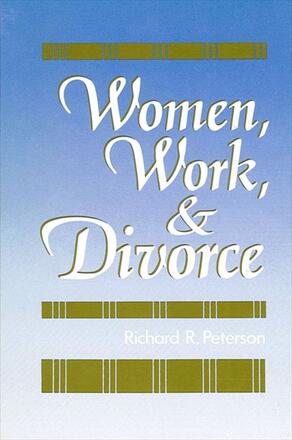
Women, Work, and Divorce
Alternative formats available from:
Description
This book considers how women cope with the economic hardship which accompanies divorce, using national longitudinal data on a generation of women in the United States. These women came of age at a time when they were expected to give priority to family roles over work roles. Yet by the time many of them were divorced in the 1970s, with the climate of changing perceptions of gender roles, women were expected to work, and were unprepared for the economic disruption caused by divorce. Peterson analyzes the experiences of women drawing upon sociological and economic approaches to the study of labor market outcomes, and of life-cycle events. He shows how over the long term most divorced women can make at least a partial recovery, but divorced women with children have a more difficult time making work adjustments, and experience greater economic deprivation. Given the continuing high rates of divorce, Peterson's findings highlight the importance of work rather than marriage for women's economic security.
Richard R. Peterson is Assistant Director of the Center for Applied Social Science Research at New York University.
Reviews
"Many have speculated about reasons for labor market participation differences and wage differences between women with different marital statuses. Divorced women rather than married women have higher rates of participation and higher wages...Peterson's careful analysis that employs national data provides the explanation. The analysis is absolutely first rate. There are some unexpected results: there is a polarization of divorced women; children have less impact on earnings than expected; divorce improves the position of women who work...the book has important findings, some of which will be controversial." — Judith Blau, University of North Carolina at Chapel Hill